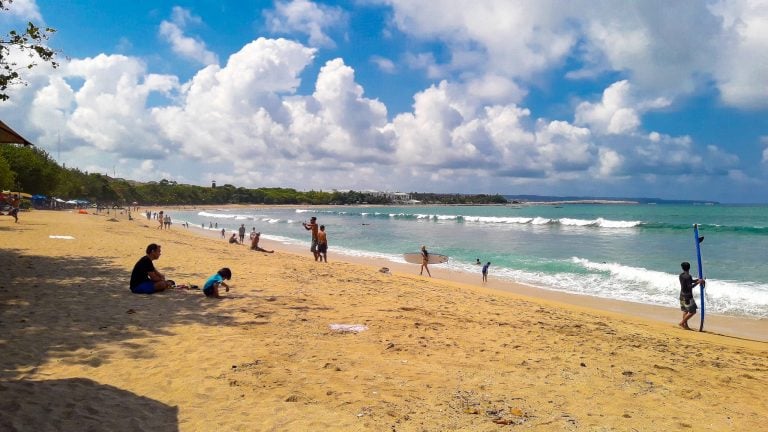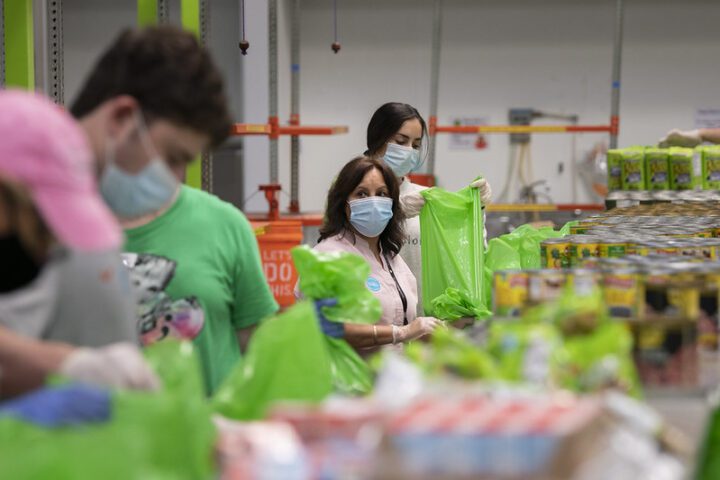The Indonesian island of Bali has declared several tourist hotspots as “red zones” following a surge in rabies cases among animals, prompting health advisories from multiple countries. With a concerning number of animal bites reported so far in 2025, travelers need accurate information to stay safe while visiting this popular destination.
Several global health authorities, including the UK’s FCDO and Australia’s DFAT, have issued travel alerts advising tourists to consider pre-exposure vaccines and avoid contact with animals. The CDC maintains general rabies information for Indonesia.
Current Situation in Bali
As of July 2025, Bali health officials have designated parts of South Kuta, Nusa Dua, Jimbaran, and Mengwi District as rabies “red zones” after finding at least one rabid dog in each area. These locations overlap with several popular tourist destinations.
“If coverage is below 70%, we do emergency vaccination,” stated Anak Agung Istri Brahmi Witari, acting head of Bali Animal Health, as reported to local media. Local authorities have launched mass vaccination and sterilization campaigns in response.
The History Behind the Headlines
This isn’t Bali’s first encounter with rabies. The island reported its initial case in 2008, triggering ongoing control efforts. Since then, health officials have conducted extensive dog vaccination campaigns across the island.
Recent statistics show the challenge remains significant, with thousands of bite cases and multiple rabies-positive animals identified in 2024-2025.
Health Response System
Bali has established 103 rabies centers and maintains stockpiles of vaccines and immunoglobulins, as confirmed by the World Health Organization. The island follows the WHO’s Stepwise Approach to Rabies Elimination (SARE) framework.
“Multisector coordination and surveillance remain our priorities,” said Dr. Imran Pambudi during a WHO-supported workshop in April 2023. Rabies vaccines and immunoglobulins are available at major hospitals and clinics in urban centers throughout Bali, though availability can vary.
Practical Safety Tips for Travelers
If you’re planning to visit Bali, health experts recommend these precautions:
- Consider pre-travel vaccination if you’ll be staying for an extended period or visiting rural areas. Consult your doctor at least 3-4 weeks before travel.
- Avoid all contact with dogs, cats, monkeys, and other mammals. This includes seemingly friendly animals at tourist sites like Ubud Monkey Forest and Uluwatu Temple.
- If bitten or scratched:
- Wash the wound thoroughly with soap and running water for 15 minutes
- Apply disinfectant (iodine or alcohol)
- Apply pressure if bleeding
- Seek medical care immediately for post-exposure prophylaxis (PEP)
- Post-exposure treatment requires multiple doses of rabies vaccine on days 0, 3, 7, and 14, with a possible fifth dose on day 28. For severe exposures, human rabies immunoglobulin (HRIG) may also be necessary.
Several medical facilities in Bali can provide PEP, including Trishnanda Care Centre, Sanglah General Hospital, BIMC Hospital, and Kasih Ibu Hospital.
Monkey Risks Often Overlooked
While dog bites receive most attention, monkeys at popular tourist sites can also transmit rabies. Visitors to Ubud Monkey Forest and Uluwatu Temple should treat any scratches or bites from monkeys with the same urgency as dog bites.
Sustainable Control Efforts
Bali has implemented several long-term measures to manage the rabies situation:
- Vaccination targets of at least 70% coverage for dog populations
- Community education initiatives
- Programs to control roaming dogs
- Mass vaccination campaigns
What’s Being Done Now
Currently, Bali is conducting emergency vaccination campaigns in affected areas. When a rabid animal is identified, local protocols include:
- Immediate area control
- Mass vaccination of animals within a specific radius
- Increased surveillance and testing
- Public awareness campaigns
In regions such as Gianyar, health centers (Puskesmas) report adequate vaccine and immunoglobulin stock to ensure visitors can receive prompt treatment if needed.
Current Status Summary
Bali remains open to tourists, with no travel bans in place. However, health authorities strongly advise travelers to:
- Be aware of designated red zones
- Follow preventive measures
- Know the location of nearby medical facilities
- Seek immediate treatment for any animal bites or scratches
For the most current information, travelers should check updates from their country’s travel advisory services and follow local news about rabies containment efforts in Bali. Rabies is preventable through proper vaccination and prompt treatment after exposure. By taking appropriate precautions, tourists can safely enjoy Bali’s attractions while minimizing health risks during the current outbreak.
FAQ
Are tourists at risk for rabies in Bali?
Yes, tourists are at risk. Bali has officially declared popular tourist areas including South Kuta, Nusa Dua, and Jimbaran as rabies “red zones.” These areas overlap with beaches and attractions that many visitors frequent. The risk comes mainly from stray dogs, but monkeys at tourist sites can also transmit rabies.
Should I cancel my trip to Bali because of rabies?
No, you don’t need to cancel your trip. Bali remains open with no travel bans in place. By taking proper precautions—avoiding animal contact, knowing what to do if bitten, and being aware of medical facilities—you can visit safely. Consider a pre-travel rabies vaccine if you’re staying for an extended period or plan to visit rural areas.
What should I do if I’m bitten by a dog or monkey in Bali?
If bitten or scratched:
- Wash the wound with soap and running water for 15 minutes (this is critical)
- Apply a disinfectant like iodine or alcohol
- Apply pressure if the wound is bleeding
- Seek medical care immediately for post-exposure treatment
Don’t wait to see if symptoms develop—by then it’s too late for treatment.
Where can I get rabies treatment in Bali?
Bali has 103 rabies treatment centers across the island. Major facilities providing post-exposure treatment include:
- Trishnanda Care Centre
- Sanglah General Hospital in Denpasar
- BIMC Hospital
- Kasih Ibu Hospital
Most tourist areas have at least one facility nearby that can provide rabies vaccine and immunoglobulin, though availability can vary.
Should I get a rabies vaccine before traveling to Bali?
Pre-travel vaccination is recommended if:
- You’re staying in Bali for more than a few weeks
- You plan to visit rural areas away from major medical facilities
- You’ll participate in activities with higher animal exposure (hiking, cycling in rural areas)
- You’re visiting with children who may be more likely to approach animals
Even with pre-exposure vaccination, you’ll still need additional shots if bitten, but you won’t need the rabies immunoglobulin, which can be harder to find.
Is it safe to visit the Monkey Forest in Ubud?
Visiting the Monkey Forest comes with risks. While many visitors have uneventful experiences, monkeys can transmit rabies through bites and scratches. If you do visit:
- Don’t bring food or items monkeys might grab
- Don’t touch or feed the monkeys
- Keep a safe distance and never stare directly at them
- If scratched or bitten, seek medical care immediately
Consider whether this attraction is worth the risk, especially when traveling with children.
How much does rabies treatment cost in Bali?
Rabies treatment in Bali can be expensive, especially for tourists:
- Post-exposure vaccine series: $200-300 USD
- Rabies immunoglobulin (if needed): $300-1,000+ USD depending on weight
- Hospital/clinic consultation fees: $20-100 USD
Travel insurance that covers rabies treatment is strongly recommended. Without insurance, full treatment can cost $500-1,500 or more.
How long does it take for rabies symptoms to appear?
Rabies typically has an incubation period of 2-3 months, but this can vary widely. In some cases, symptoms appear within a week, while in others, the virus may stay dormant for over a year. The location of the bite affects this timeline—bites closer to the head and neck tend to develop symptoms faster than bites on limbs.
Once symptoms appear (fever, anxiety, confusion, difficulty swallowing), the disease is almost always fatal. This is why immediate treatment after exposure is essential.


















